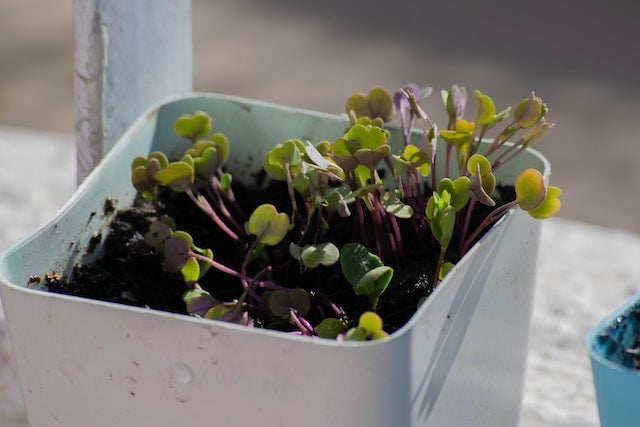Your Cart is Empty
Add description, images, menus and links to your mega menu
A column with no settings can be used as a spacer
Link to your collections, sales and even external links
Add up to five columns
Add description, images, menus and links to your mega menu
A column with no settings can be used as a spacer
Link to your collections, sales and even external links
Add up to five columns

Breaking Down Fertilizers: The Gist
April 10, 2023 2 min read
Growing your own plants and vegetables at home can be a rewarding experience. However, to ensure that your plants grow healthy and produce a good yield, it is essential to provide them with the necessary nutrients. This is where fertilizers come into play. In this blog post, we will discuss the different types of fertilizers that are suitable for home growers, their benefits, and how to choose the right one for your plants.

Types of Fertilizers
There are two main types of fertilizers: organic and inorganic. Organic fertilizers are derived from natural sources such as animal manure, compost, and bone meal. They release nutrients slowly and are gentle on plants, making them a great option for home growers. Inorganic fertilizers, on the other hand, are chemically synthesized and release nutrients quickly. They are also more concentrated than organic fertilizers and can cause damage to plants if not used correctly.

Benefits of Fertilizers
Fertilizers provide plants with essential nutrients such as nitrogen, phosphorus, and potassium, which are necessary for growth and development. They also improve soil fertility, increase water retention, and enhance plant resistance to diseases and pests. Proper use of fertilizers can lead to healthier and more productive plants, resulting in a bountiful harvest.

Choosing the Right Fertilizer
When choosing a fertilizer, it is important to consider the specific needs of your plants. Some plants require more nitrogen, while others need more phosphorus or potassium. You can determine the nutrient requirements of your plants by conducting a soil test or by consulting a gardening expert.
For home growers, it is recommended to use organic fertilizers as they are gentle on plants and provide long-lasting benefits to soil fertility. Examples of organic fertilizers include compost, worm castings, and fish emulsion. They can be applied directly to the soil or mixed with water and sprayed onto the plants.
Inorganic fertilizers can also be used, but they should be used sparingly and according to the instructions on the packaging. Overuse of inorganic fertilizers can lead to nutrient imbalances, which can damage plants and harm the environment.

Your lights are still important!
If a plant is not receiving enough light, it may not be able to effectively take up and utilize the nutrients present in the soil or provided through fertilization, even if they are available. This can lead to stunted growth, nutrient deficiencies, and other issues. The forefront of conversation still should be about whether or not your plants are getting enough light. You can supplement insufficient lighting with the Growtronics Shelfgrow T5 LED Grow Lights.

Fertilizers are essential for home growers who want to grow healthy and productive plants. Choosing the right fertilizer is important to ensure that your plants get the necessary nutrients without causing harm to the environment. With the right fertilizer and proper use, you can enjoy a bountiful harvest of fresh, home-grown produce.
Wanting to learn more about indoor growing? Check out our full blog list here. Tune in next week for the in-depth fertilizer breakdown and what different concentrations are for!
Subscribe
Sign up to get the latest on sales, new releases and more …
